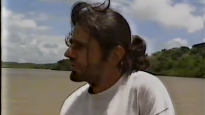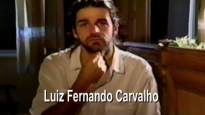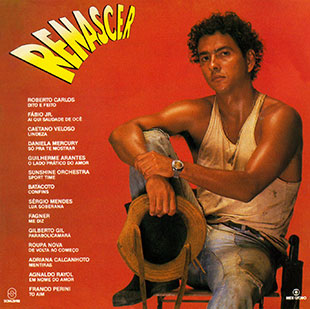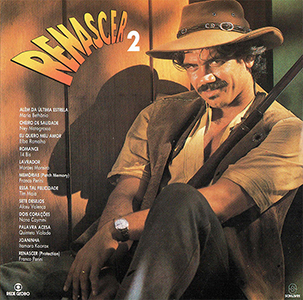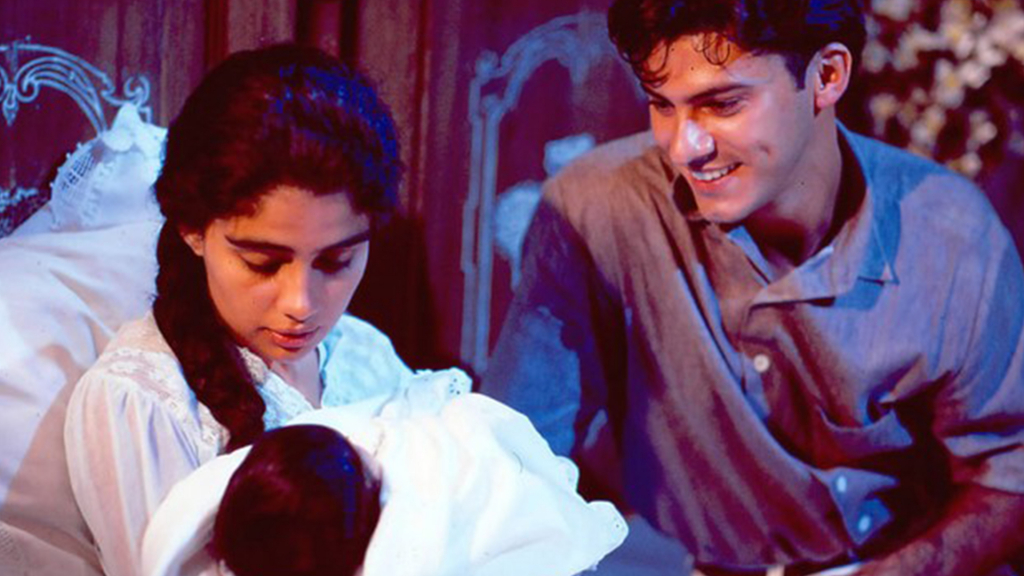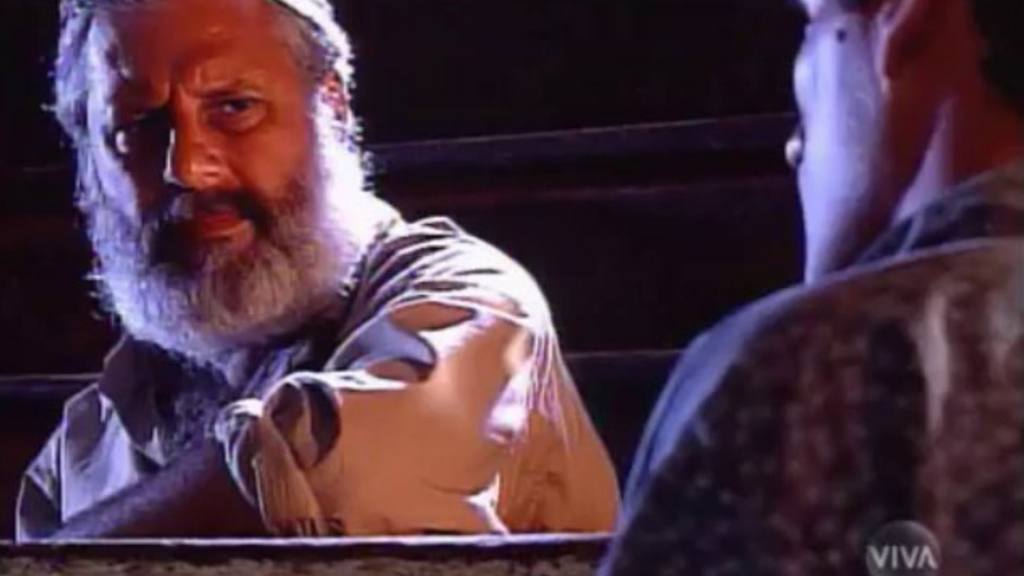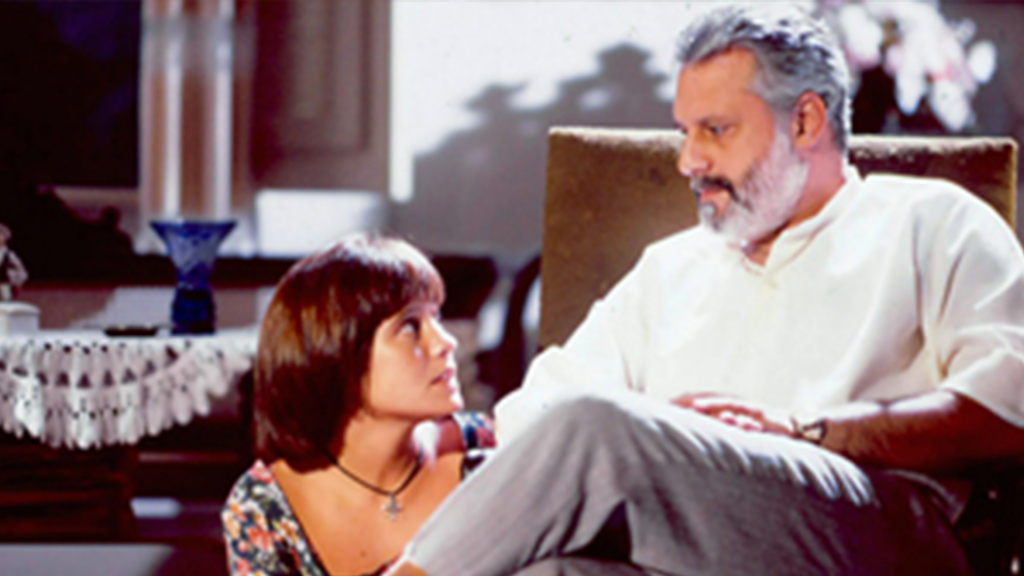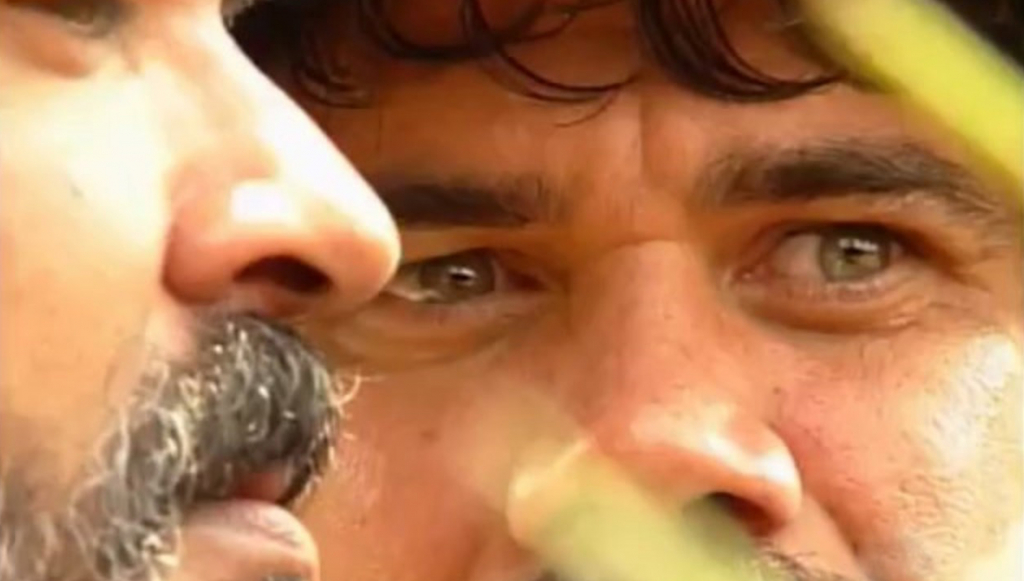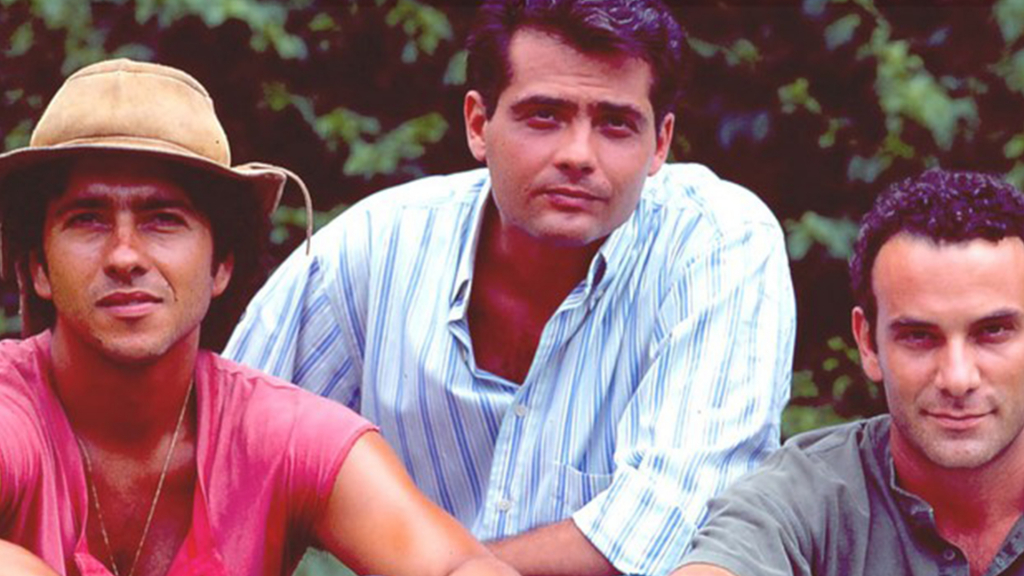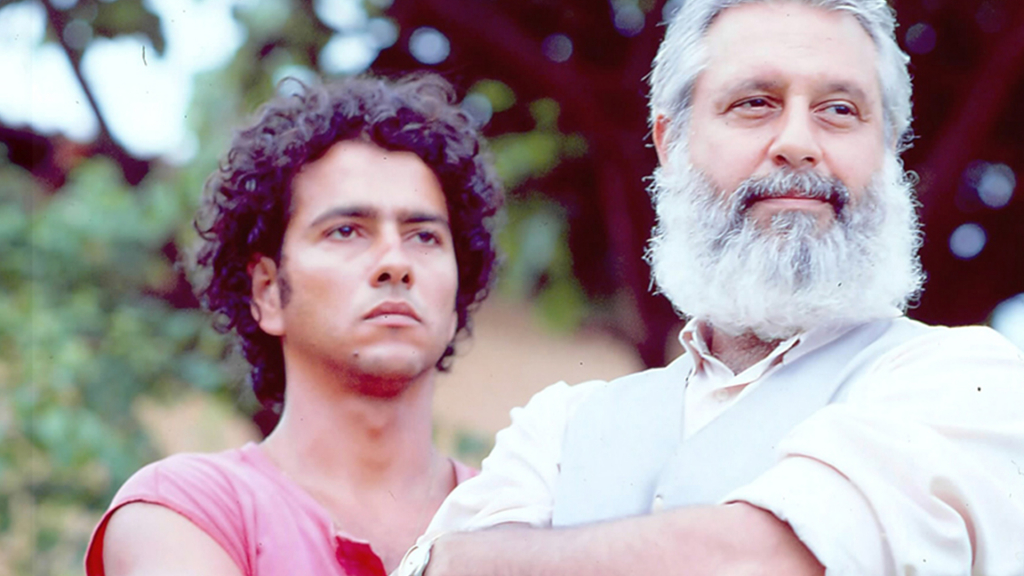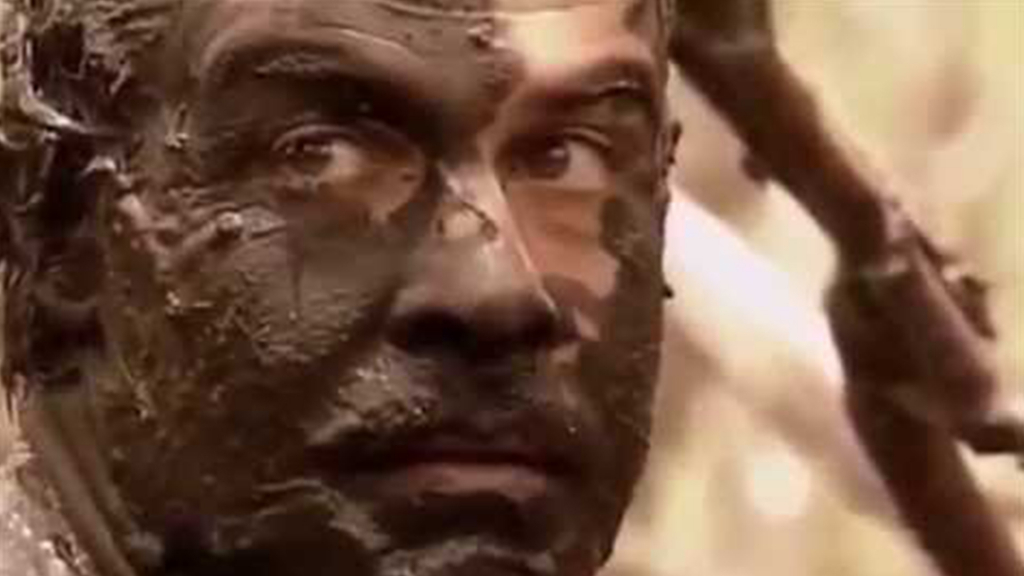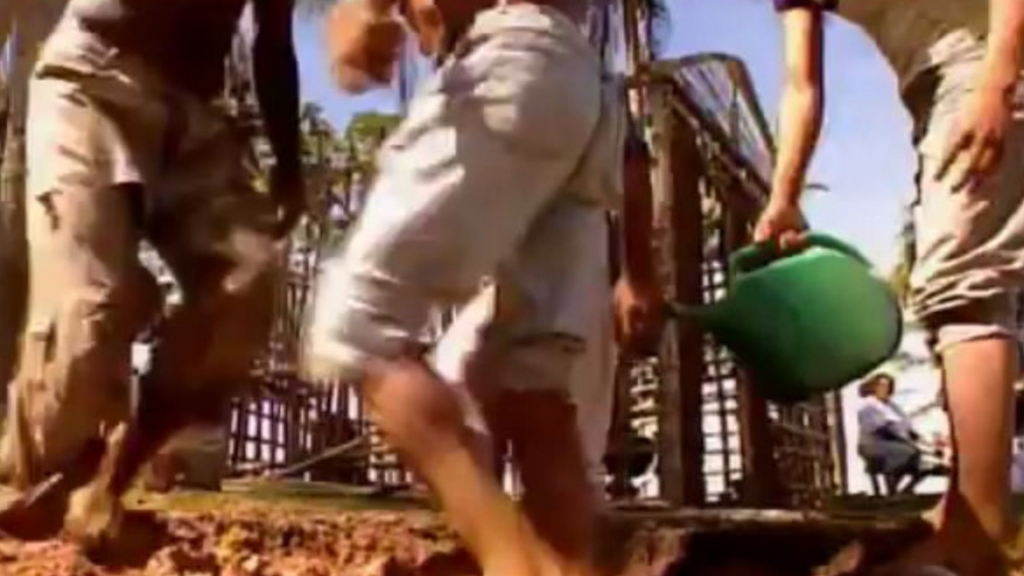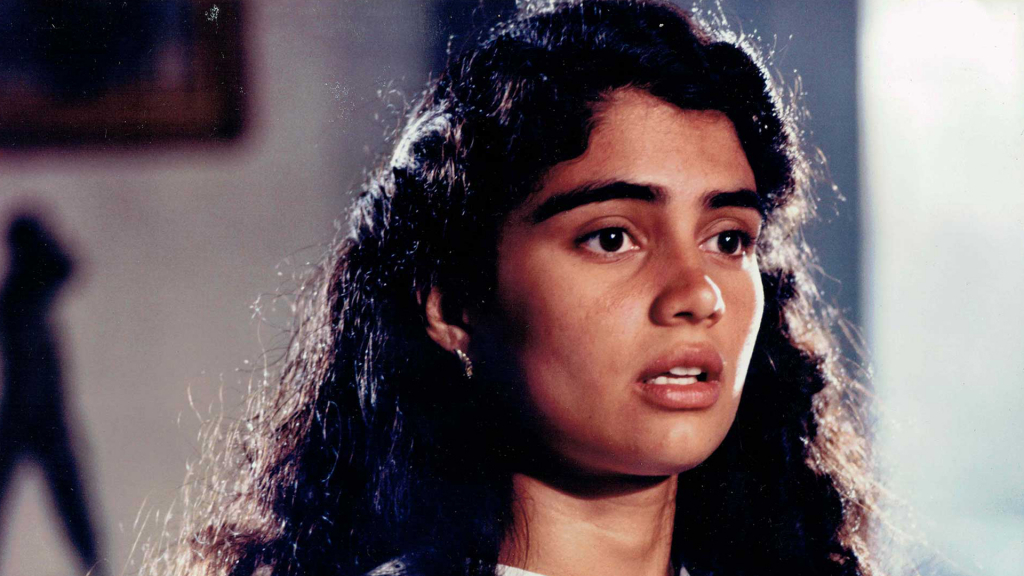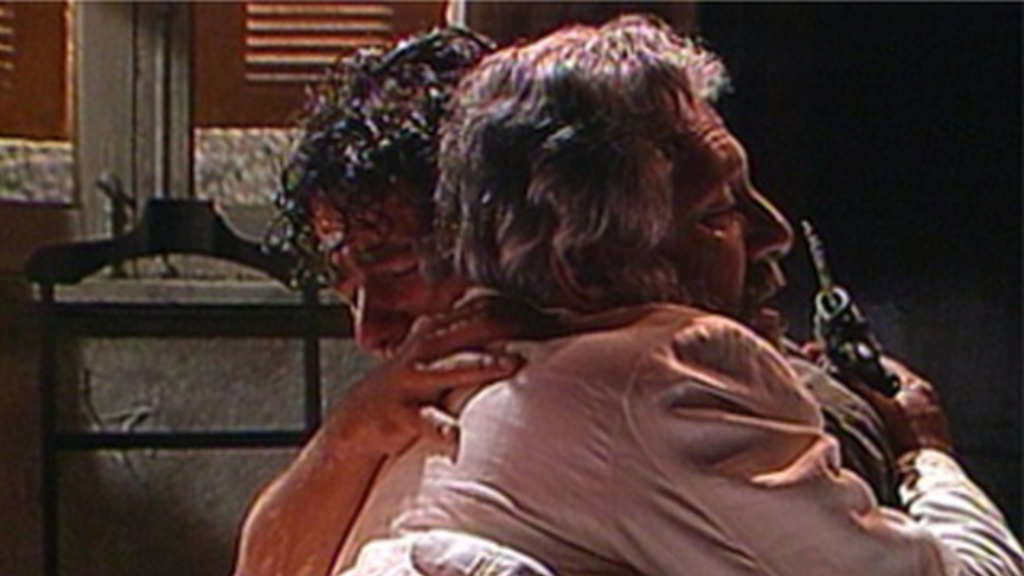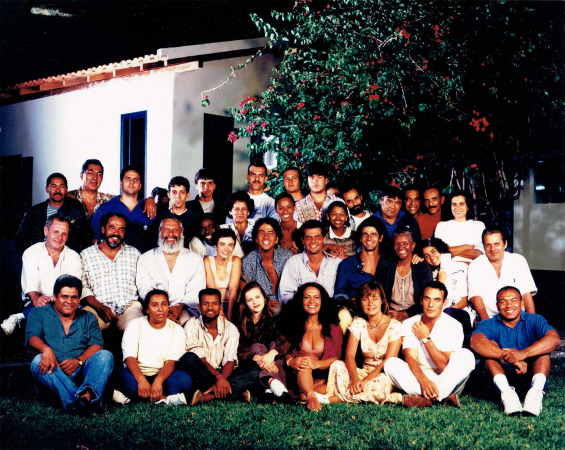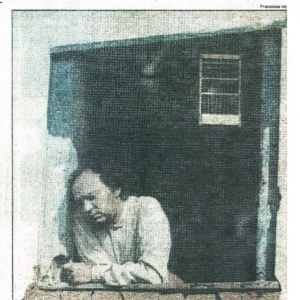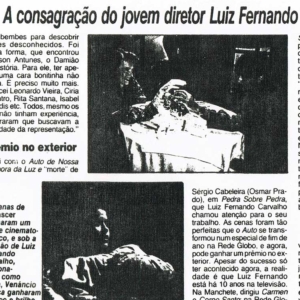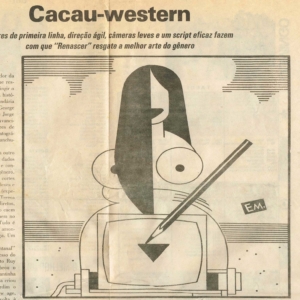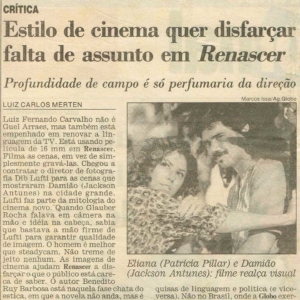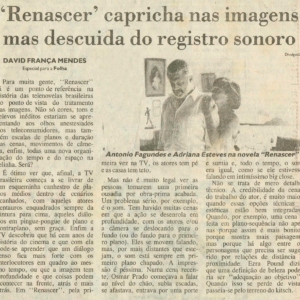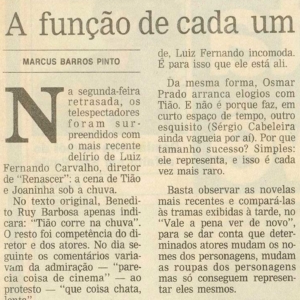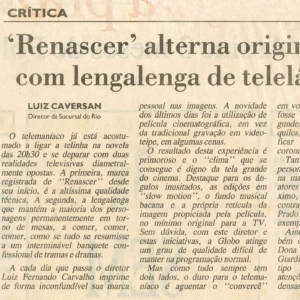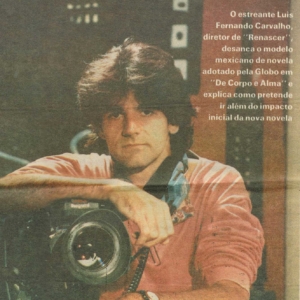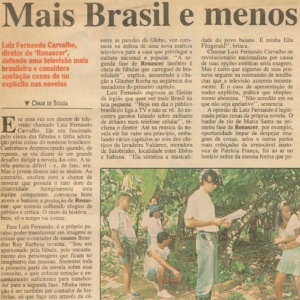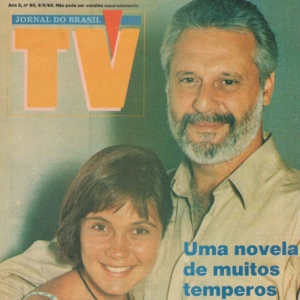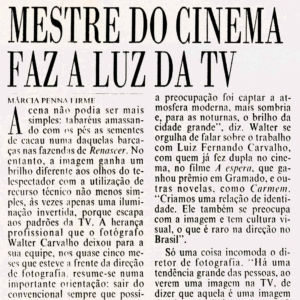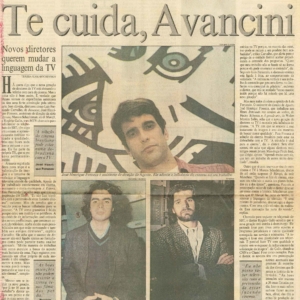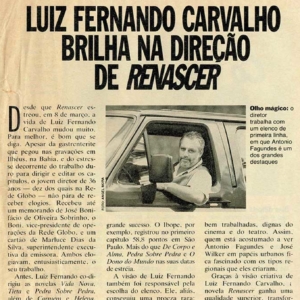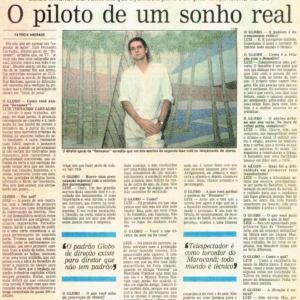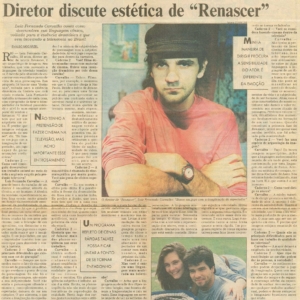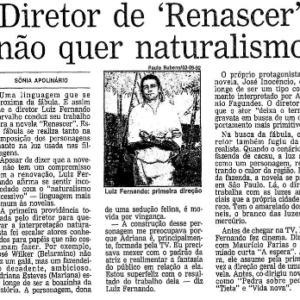Director’s Vision
By Luiz Fernando Carvalho (interview with Patrícia Andrade, June - 1993)I divide my work into two parts in Renascer. The first corresponds to the concept and the realization of the soap opera’s initial phase: the attempt to, from the text, seek a narrative close to the fable, the ludic universe of the Brazilian people. The other, really more difficult, marked the passing of time, when the characters would no longer be so motivated by hope, by romanticism. The precariousness found on the dirt roads and wagons of that time had to be found in human relations, and the dream, surviving as a breath, in the apparitions of Maria Santa, easing Inocêncio’s burden.
The soap opera reached a tone, sought by me and Benedito Ruy Barbosa, of fable, enchantment, recovery of the hero, dream, hope, allied to an intense awareness of the real and the country. It could not be a pure and simple fantasy, because the country does not allow it.Renasceris the portrait of the Brazilian people, who live with the delirium of the dream and the precariousness of the real.
PHASE TRANSITION
In the transition to the second phase, the loss of six chapters with the reissue of the first phase caused an anticipation of the continuation of the story and an aesthetic imbalance between some scenarios. This even required some rewriting. At the same time, there was also a certain homesickness and resistance to some characters from the second phase. We had to work hard, as if we were starting a new first chapter. With everyone’s help, we identified the flaws, creating a new unit that culminated with Benedito Ruy Barbosa’s idea of taking most of the cast to Ilhéus. Anyway, much more difficult than conceptualizing a soap opera is to keep this concept from crumbling during the long journey of nearly 200 chapters.
BREAKTHROUGH TALENTS
One of the great hits of the novel is the result of the breakthrough casting. The most important, undoubtedly, is Jackson Antunes, who entered the soap opera with enormous responsibility. In other casting, Damião, his character, would probably be defended by an actor who offered less risk to the company. In Renascer, I cast actors such as Leonardo Vieira, Cyria Coriander, Rita Santana, Cacá Carvalho, Isabel Filardis, Maria Luisa Mendonca, Marco Ricca and Paloma Duarte. And everyone, even those with no experience, has shown that they seek the quality of representation. I don’t feel comfortable putting someone inside a television channel watched by millions of viewers without them having anything to say. I don´t condone with a lousy casting. I’m looking for people who want to take this step connected with an inner freedom, not driven by a media eager for more and more myths per minute. Unfortunately, the social condition of the country favors this delirium in search of fame.
THE MIRROR
At the beginning of my career, I used to make television pretending to be making movies. I was in love with the camera. And that was emptying out. There was a time when I had a wonderful lesson from Yara Amaral, when I was directing Helenaon TV Manchete. We did a scene where she and Monica Torres were in a basement. There was an antique mirror in the setting. I decided to take advantage of it, because it was another face of the character that would reveal itself and I thought of an association with the reflection. We just finished shooting, and I found the result wonderful. I called Yara so we could review together. She was silent and I asked her opinion. Suddenly Yara said in a low voice: “I wanted to see my eyes more.” That came to me in a special way. All juggling the camera didn’t do much good. Screw the mirror!
I began to perceive more the actor’s soul, each one’s eyes. And try to make them emanate images for me. In the past, I would set and prepare the camera and then call the actor. Today, I call the character first.
AUTHORIAL DIRECTION
I am in love with the first phase of Renascer. There I was able to dive into the fable without being corny. But in general, I am very critical of my work. If I rewatch the chapters, I will discover things that I would make different, such as the sequence of Maria Santa death. It’s wonderful, like the text, but something bothers me. Maybe I exaggerated a bit in the role play. It could be more contained.
Undoubtedly, I seek an authorial direction. As much as I create associations, the synthesis belongs to the author. On TV today, if you don’t have a personal handwriting, someone holds your hand and signs for you, there’s a pattern for those who don’t have a pattern. But I was lucky to have great teachers inside the television. And everyone imposed their personalities. I have no reason to escape the search for a more authorial work on TV. A director is a director only when he has artistic responsibility. Otherwise, it becomes a whistle blower.

